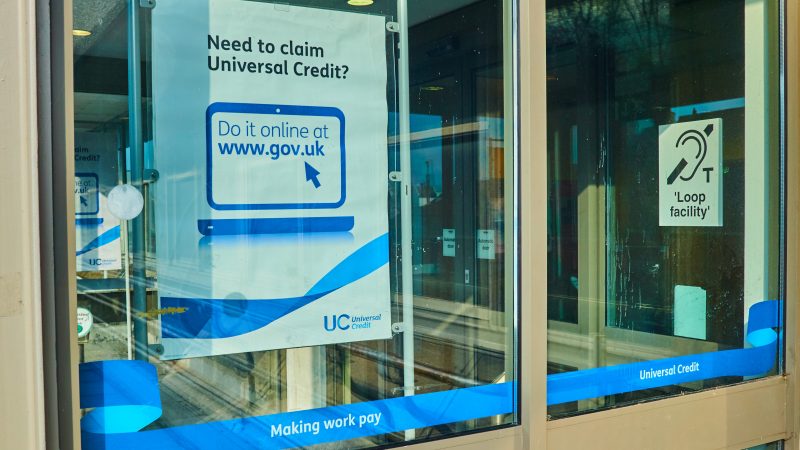
Jonathan Reynolds has called on the government to provide more support for families struggling over the winter this year following the publication of a new report showing an “appalling” rise in the number of people facing destitution.
Responding to a report released by the Joseph Rowntree Foundation, the Labour frontbencher reiterated the party’s demands for urgent changes to be made to welfare to better support families facing hardship in the pandemic.
The analysis by the charity found that destitution rose by 54% between 2017 and 2019 and that 2.4 million people – including over half a million children – were experiencing “extreme hardship” before coronavirus hit the country.
Commenting on the report published by the organisation today, Labour’s Shadow Work and Pensions Secretary declared: “No child in Britain should be hungry or without essentials.
“The government must do more to support struggling families who are facing real hardship this winter. They must see sense and scrap the planned cut to Universal Credit, which will take £20 a week from six million families.”
According to the analysis from the JRF today, one in seven people – 14% – experiencing destitution were in paid work, and the phenomenon became more concentrated in the northern regions over the two-year period.
The report identified inadequate benefit levels and debt deductions, particularly the repayable Universal Credit loan many people are forced to borrow to cover the five-week wait for the benefit, as key drivers of destitution.
Reynolds added: “We urge the government to end the disastrous five-week wait, which is pushing people into debt, as well as increase support for those on legacy benefits, such as carers and disabled people, who have had no additional support throughout this crisis.”
Claimants can apply for a Universal Credit loan to see them through the five-week waiting period for the benefit payments to begin. But this is repayable via deductions to the subsequent payments that an applicant receives.
The number of people on the benefit has more than doubled over the course of the pandemic, with 5.7 million people in receipt of Universal Credit in October. Around 1.3 million claimants were issued with loans between March and June.
Labour urged the government to make five changes to the social security system earlier this year, including scrapping the five-week wait. Food bank network Trussell Trust has called for a freeze to the deductions from payments.
Labour warned that recent figures, showing that half of all households visiting food banks have struggled to afford essential goods as a result of repaying debt accrued through the benefit, is a sign that Universal Credit is “clearly failing”.
Commenting on the research released by JRF this morning, director of the organisation Helen Barnard said: “It is appalling that so many people are going through this distressing and degrading experience, and we should not tolerate it.”
She added: “We can and must do more. The pandemic has shown just how much we want to look out for each other in difficult times, but the sobering truth is that even before Covid-19 hit, the number of people in destitution was rising sharply.”
Barnard said the current welfare system is not doing enough to protect people and called on the government to confirm that the £20 uplift to Universal Credit, granted by the government in March, will not be cut from April next year.
The government raised the standard allowance for the benefit by £20 a week for a year. This resulted in an income rise of just over £1,000 per year, with the rate for a single claimant over the age of 25 up from £317.82 to £409.89 per month.
But the measure is only set to last for 12 months and the increase is due to be cut next year. Despite calls from charities and Labour to retain the uplift, Rishi Sunak remained silent on the benefit during his spending review last month.
The report released by the charity this morning is the third in a series of ‘destitution in the UK’ studies, published every two years by the foundation and undertaken by Heriot-Watt University.
It consists of a survey taken at the end of 2019 and interviews with 70 people in spring 2020. A household is considered destitute when it cannot afford two or more of the essentials needed to survive, such as food and shelter.




More from LabourList
‘As metro mayors gain power, Labour must tighten political accountability’
Letters to the Editor – week ending 22 February 2026
‘The coastal towns where young people have been left behind by Whitehall’